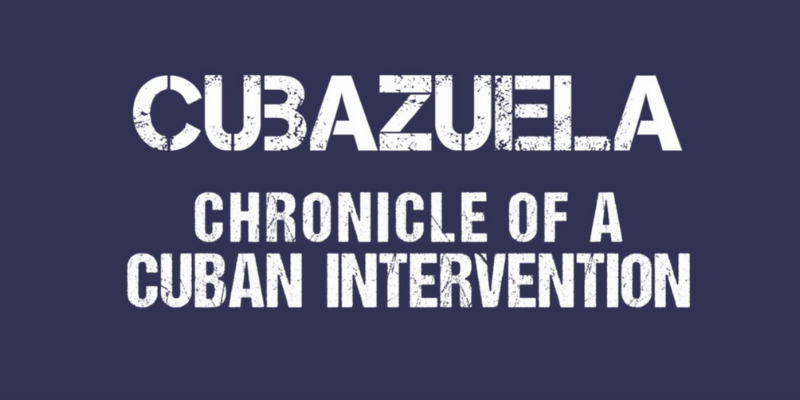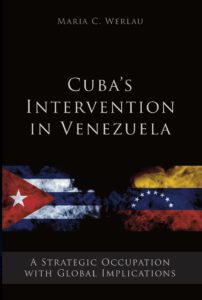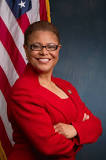 The U.S. Department of Energy has determined that Cuba and Venezuela are “foreign adversaries” that might target the U.S. electrical grid, The Miami Herald reports:
The U.S. Department of Energy has determined that Cuba and Venezuela are “foreign adversaries” that might target the U.S. electrical grid, The Miami Herald reports:
The executive order aims at securing the bulk-power system — the facilities and control systems necessary for operating the electrical network — from the “malicious activities” of these foreign actors, and orders the Department of Energy to define those. In a notice published in the Federal Register on Wednesday, the department included the governments of China, Cuba, Iran, North Korea and Venezuela in its “current list of foreign adversaries.”
Cuba’s intervention in Venezuela is a strategic occupation with global implications, author Maria Werlau told Tom Gjelten, author of Bacardi and the Long Fight for Cuba and reporter at National Public Radio.
 Venezuela’s president Nicolás Maduro has seized control of the party of opposition leader Juan Guaidó, his latest attack on the opposition ahead of parliamentary elections in December. The government-controlled supreme court on Tuesday ousted the board of Mr Guaidó’s Voluntad Popular (Popular Will) party and named José Gregorio Noriega, a lawmaker expelled from Popular Will months ago, as its new leader, The Financial Times adds:
Venezuela’s president Nicolás Maduro has seized control of the party of opposition leader Juan Guaidó, his latest attack on the opposition ahead of parliamentary elections in December. The government-controlled supreme court on Tuesday ousted the board of Mr Guaidó’s Voluntad Popular (Popular Will) party and named José Gregorio Noriega, a lawmaker expelled from Popular Will months ago, as its new leader, The Financial Times adds:
The court’s move followed similar action in June against two other opposition parties, Acción Democrática and Primero Justicia, and gives Mr Maduro and his supporters a clear path to seizing control of the National Assembly from the opposition in the election. The EU imposed sanctions on Mr Noriega, along with 10 other pro-Maduro officials, last month with an asset freeze and travel ban for undermining democracy and the rule of law in Venezuela….If Maduro’s supporters win control of the National Assembly in December, Mr Guaidó’s claim to be Venezuela’s legitimate leader could be undermined.
“With today’s decision . . . Maduro seeks to consolidate his model, a Cuban vision of a single party of the 21st century, where there is only the official party and parties supposedly of [the] ‘opposition’ but absolutely controlled by the regime,” said Carlos Vecchio, Mr Guaidó’s ambassador to the US and a leading member of the party.

Rep. Karen Bass
“When a judiciary that answers to Maduro decapitates opposition political parties that represent dissenting voices, it undermines the rights of all Venezuelans, dispensing with even the pretence of a democratic process,” said José Miguel Vivanco, Americas director at Human Rights Watch.
In Florida, some resent Rep. Karen Bass’s too-respectful 2016 statement on Fidel Castro’s death, calling him “comandante en jefe” (commander in chief), The Post’s George Will writes. Their anxiety would be assuaged by her service on the board of the government’s most cost-effective program, the National Endowment for Democracy (NED), where she has supported 65 grants totaling $6 million for democracy movements in Cuba.







